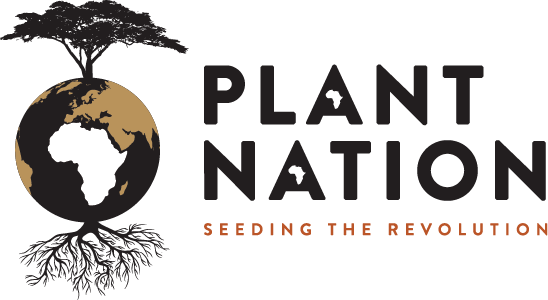18 Jun The Big Q: How Do We Help the Planet?
By Ané Venter
In recent years, saving the planet has become a hot topic. With key words like “global warming”, “sustainability” and “save the trees” floating around our social media and news feeds, it’s clear that we, as a human population, have realised the necessity for huge reform regarding the way we go about our business on this planet. We’ve heard of the legendary speech made in 2019 by the young Swedish activist, Greta Thurnberg. At the U.N.’s Climate Action Summit in New York City, she beseeched that our world leaders seriously regard the dire environmental situation on our planet[1]. We’ve heard about the ice caps melting, and the polar bears that are suffering and struggling to survive the uncharacteristic rising heat in their habitats. We know that burning fossils fuels is a pretty harmful way to recover energy, we know that solar and wind power is ‘greener’. We’ve all come across the opportunity to recycle, whether it’s in our own households, or somewhere in a public space. We see separate bins for plastic, tin and paper, provided by the state or establishment. We know that plastic bags have been banned in more than 15 countries in Africa (Riskey, 2017), and even more so in other parts of the world.

Image showing countries in various stages of banning plastic bags. Source: Ever More Countries Are Banning Plastic Bags, The Economist, (2019), https://www.economist.com/graphic-detail/2019/07/24/ever-more-countries-are-banning-plastic-bags
The question remains, what can each one of us – as individuals on this Earth – do about all of this?
Most of us, however sympathetic we may be to the countless environmental problems at hand, are at a loss when it comes to the specific actions we can take to actually alleviate the situation. Raising awareness is one thing, and it’s definitely very helpful to make sure the critical message: save the planet! reaches as many people as possible. Unfortunately clicking the share-button on a Facebook post doesn’t do much to protect the environment in the real world. The problem with this general lack of action may be because the dying-earth-phenomenon that we are faced with seems so huge; a vast, insurmountable problem, and each of us may end up feeling rather small and insignificant in comparison. The irony of this mindset is that we may then be hesitant to do anything, because we feel that it will probably not make a huge difference in solving the greater problem.
It is a common reaction in people to shy away from taking part in issues if we feel that our efforts will get lost in the enormity of it anyway, and given the sheer volume of bad news streaming into our lives on a daily basis, we hardly know where to begin when it comes to environmental action.

From atoms to galaxies, shells to plants to fingerprints, nature is fractal, presenting the golden ratio (Fibonacci sequence) at every turn. Source: unknown
However, the thing about nature is that it is operational on every level. From the very tiniest subatomic quarks, all the way into the enormous galaxy that encompasses the Earth, nature is at play. It is all around us, in just about every shape and size. We can therefore be assured that even by planting a flower, or not littering, we are positively affecting nature on some level.
One of the most impactful ways to contribute to the wellbeing of our environment is to facilitate natural life, and this can be done by opting to plant a living organism. One such organism stands out from the rest, because it not only absorbs and stores environmental Carbon, but also provides us with vital Oxygen, as well as shade, stabilises soil, grows food, shelters many animal species, can live for a great many years, and is still aesthetically pleasing – you guessed it, a tree. Planting a tree is an efficient and satisfying way to assist nature, if not because of the typical long lifespan of a tree, then at least because they contribute to the organic leaf-litter layer of your garden soil, or provide you with flowers, fruits or nuts. It’s no secret that there is a great need for reforestation and individual tree planting in the world, due to the infamous stripping of our forested landscapes (such as the various tropical forests situated along the equator). Whatever the reason, and whatever the scale, the unmitigated and reckless removal of indigenous trees from areas throughout the world have resulted in huge problems for our environment. Deforestation and the loss of trees has been linked to climate change, desertification, soil erosion, fewer crops, flooding, increased greenhouse gases in the atmosphere, and a host of problems for indigenous people (Pachamama Alliance, n.d).

The good news is that planting trees has never been easier. With the growing global concern for our planet and the forests disappearing from it, organisations like PlantNation have been created to facilitate the common intention of planting trees. By selecting appropriate species, areas and planting periods, PlantNation provides each person with the opportunity to put a tree (or several) in the ground without them being deterred by the limitations they may face, such as lack of knowledge of dendrology (the study of forests and trees) or ecology. Nature is a dynamic, complex living system, and we are indeed a part of it. Now is a time to participate in the process of healing of the planet, a process that does start with each individual. By choosing to get involved in regreening, you acknowledge that every tree makes a difference. Visit www.plantnation.co.za to find out more about how you can plant a tree and help our planet.
References
Pachamama Alliance, n.d. Effects of Deforestation. [Online]
Available at: https://www.pachamama.org/effects-of-deforestation#:~:text=The%20loss%20of%20trees%20and,of%20problems%20for%20indigenous%20people.
[Accessed 11 06 2020].
Riskey, E., 2017. Which Countries Have Banned Plastic Bags?. [Online]
Available at: https://study.com/blog/which-countries-have-banned-plastic-bags.html
[Accessed 11 06 2020].


